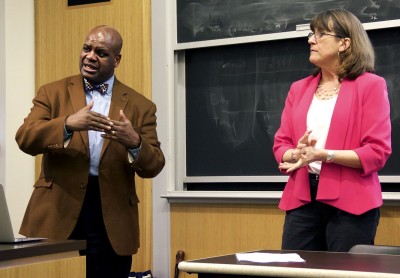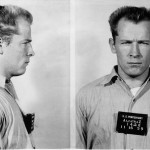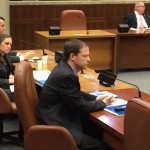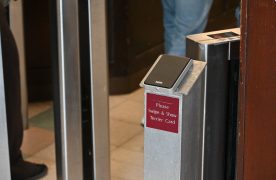
Boston University Dean of Students Kenneth Elmore and Title IX coordinator Kim Randall spoke about resources and disciplinary process to address sexual misconduct at a Thursday panel presentation hosted by Feminist Collective, an on-campus feminist advocacy group.
Title IX, a federal law which is part of the Education Amendments of 1972, prohibits discrimination on the basis of sex for institutions, including universities, that receive federal funding, according to the U.S. Department of Education’s website.
“If there’s a sexual assault that doesn’t happen on campus, it’s still something we address because no matter where you are, it might impact your classes, [and] it might impact your living situation,” said Randall, whose role at the university includes coordinating crisis response and handling. “Anything that impacts how you function here at the university, how you study and live comfortably, those are things we worry about no matter where they take place.”
About five students attended the panel. Attendees were given information about how sexual misconduct is handled at the university.
Elmore said sexual misconduct violates the student code that incoming freshman and transfer students are required to sign before starting classes. For this reason, BU may sanction students they believe likely committed the offense.
Sanctions can vary in scope and can include anything from removing one person from a dormitory to suspending someone, Randall said.
“When we get a complaint for sexual assault or sexual harassment, we can do things as the [legal] investigation is proceeding,” she said.
BU faculty, staff, advisors, resident assistants and teaching assistants are obligated to report complaints to the Title IX office, where the claims are evaluated and referred to other offices such as the Office of Judicial Affairs, which processes infractions to the student code, Randall said.
Students who wish to report sexual misconduct anonymously can speak with the Sexual Assault Response and Prevention Center, the behavioral health clinic and clergy members who act in a religious, but not professional capacity, Randall said.
Elmore called attention to a third party hotline called EthicsPoint. The anonymous system allows students to report sexual misconduct by faculty and students.
When asked why the administration decided to opt out of the sexual assault survey released by the American Association of Universities, Elmore said university officials wanted to create a customized survey to be released in a timely manner.
“If the AAU had had a more developed survey, we may have made a different decision, but we did not want to wait to get our survey out,” he said.
BU’s launched its survey March 19 to gauge how much students know about sexual misconduct and what they think about the university’s capability in handling such cases, The Daily Free Press reported on March 20.
Jess Klein, an organizer also from FEMCO, said the panel was a way for students to learn the process of reporting sexual misconduct, which can appear bureaucratic and daunting.
“There’s so much that I didn’t know, and going forward I think that this information is really important to get to students just so they know what the university can do for them, and what the university can do to advocate for their rights,” said Klein, a junior in the College of Arts and Sciences. “The scary process of going through the university seems a lot less scary after this presentation.”
Klein said students could benefit from incorporating information about Title IX processes into pre existing programs, such as Step Up Step In, the bystander-training program that student groups must complete before receiving funding from the BU Allocations Board.
Tori Dutcher-Brown, a member of the Center for Gender, Sexuality, and Activism, said informational events such as “Know Your IX” can help demystify the reporting process to victims.
“Often you’ll get people who will disclose something but they won’t know the full process of it, so maybe it will be going down an avenue they don’t want and they feel like they’ll lose control,” said Dutcher-Brown, sophomore in CAS. “[In] these situations where control is stolen from the survivor, it’s very important to maintain that person’s dignity in the aftermath.”
Elmore said he hopes the university can continue to discuss difficult subjects like sexual misconduct.
“On this broad level, these are the kinds of questions we are going to grapple with our whole lives, questions of how we treat each other the questions about sexism in society,” he said. “These are real important issues, especially for people who are going to go out and be leaders in society.”














